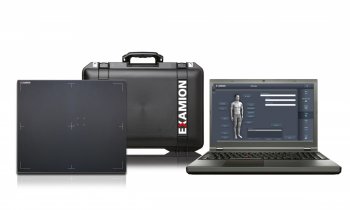Communication
Communication is key to Emergency Department success
The high-risk, rapidly changing nature of hospital Emergency Departments creates an environment where stress levels and staff burnout rates are high, but researchers at St. Michael's Hospital have identified the secret sauce that helps many emergency clinicians flourish - communication.
Communication lapses can negatively affect patient health, especially in the first hour of trauma cases - known as the golden hour.
"Many health-care professionals who gravitate to the ED have similar personality traits that draw them to this chaotic and stimulating environment but we have found the clinicians who succeed at providing the best care for their patients seem to also possess strong teamwork and communication skills," said Dr. Alun Ackery, a St. Michael's Hospital emergency physician.
A commentary published in Emergency Medicine Australasia offers strategies to ED residents and nursing staff on how to improve communication, trust and efficiency, even before a challenging case comes through the doors.
"Working in the ED can be a high-stress, demanding job, which can negatively impact patient care," said Kirsty Nixon, a nurse practitioner with the Trauma and Acute Care Surgery Program of St. Michael's and former nurse with the hospital's Emergency Department. "Clear and concise communication between doctors, residents and nursing staff is essential to quality patient care in the ED."
Researchers suggest that residents and physicians introduce themselves to any new faces on the team; speak with nurses before assessment; share learning opportunities with any interested clinical staff; explain physician orders and include nurses in reassessment and signover.
Similarly, the commentary suggests nurses introduce themselves to new faces; embrace newcomers who are new learners; be direct and clear; seek clarification when needed; engage, partner and teach.
"The tips seem like common sense because they are but when they are built into daily practice, staff build trust and rapport," said Nixon. "That way, when tensions run high in critical situations the team has a strong base."
Ackery said he would like to assume that these suggestions are already practiced by veteran staff physicians and nurses but hopes the tips may help even "old dogs learn some new tricks" with respect to communication and patient care.
Source: St. Michael’s Hospital
30.01.2015






